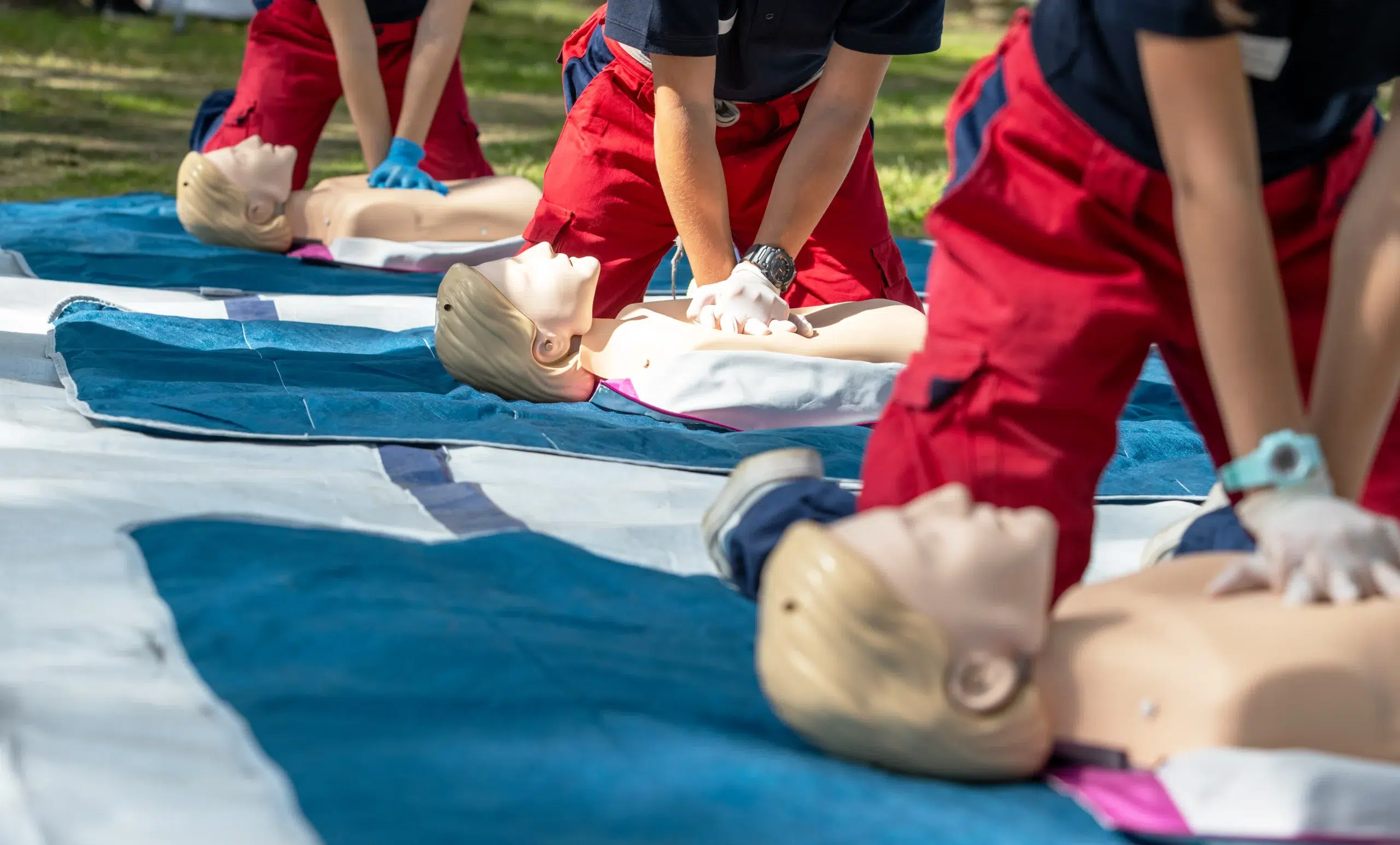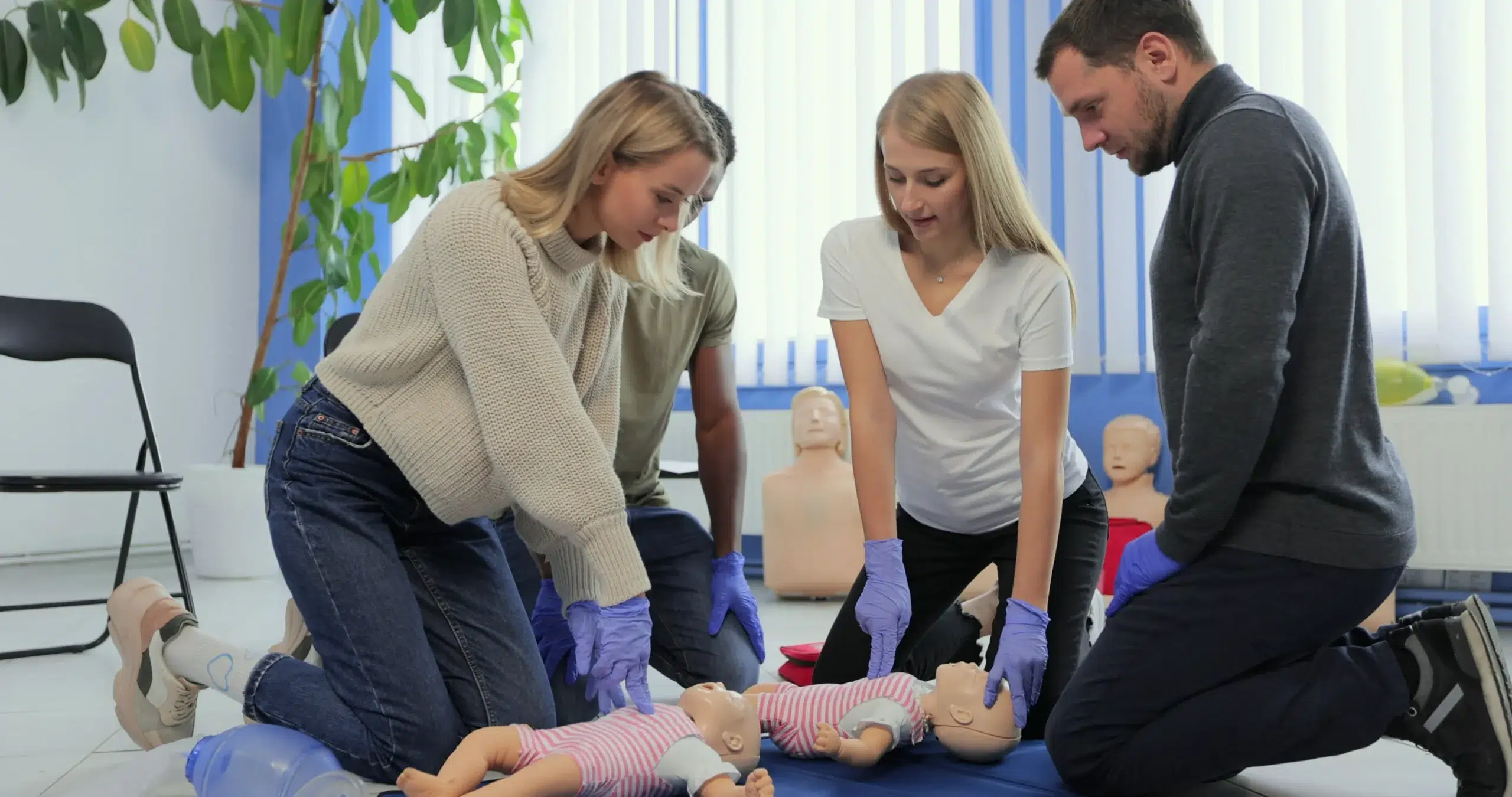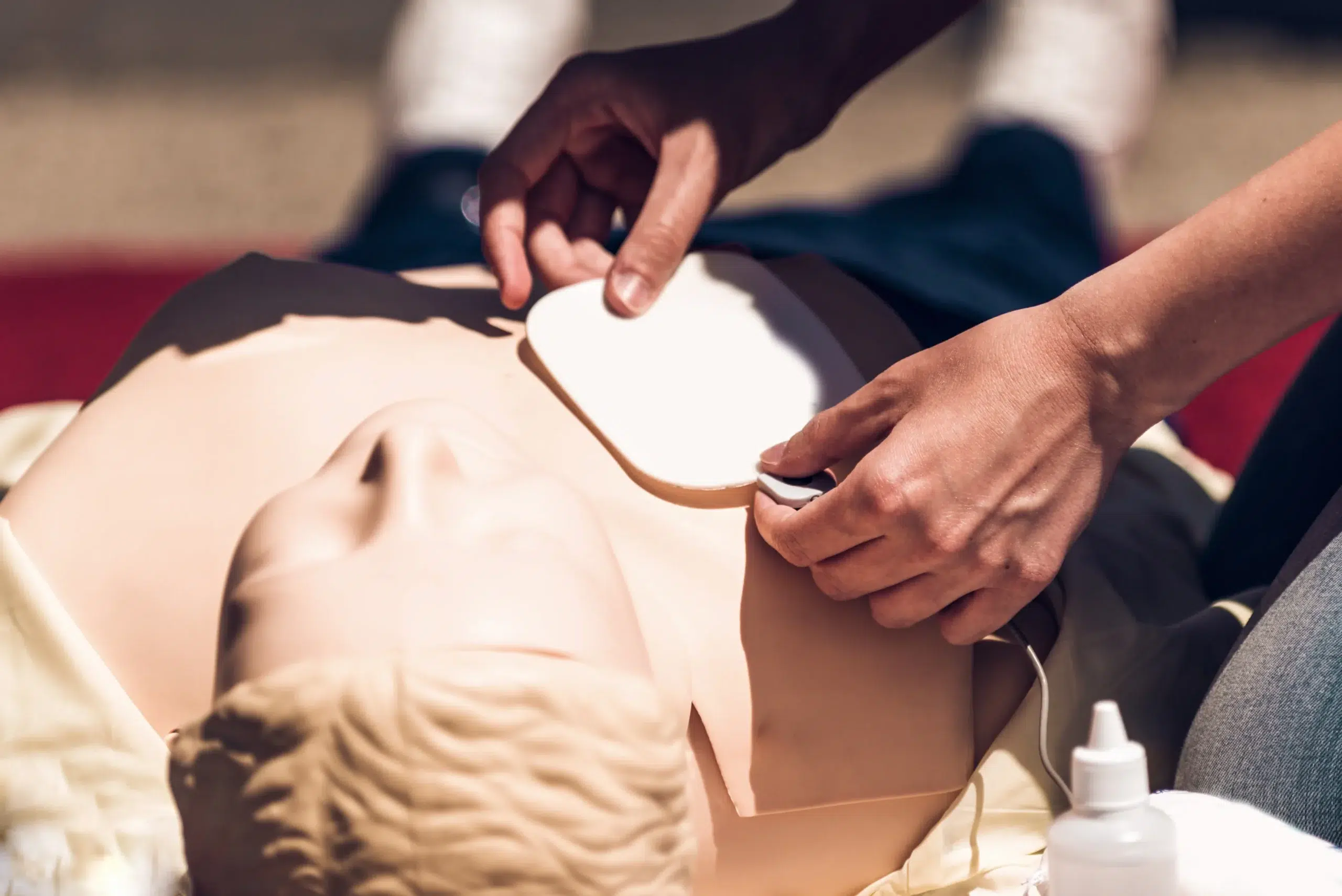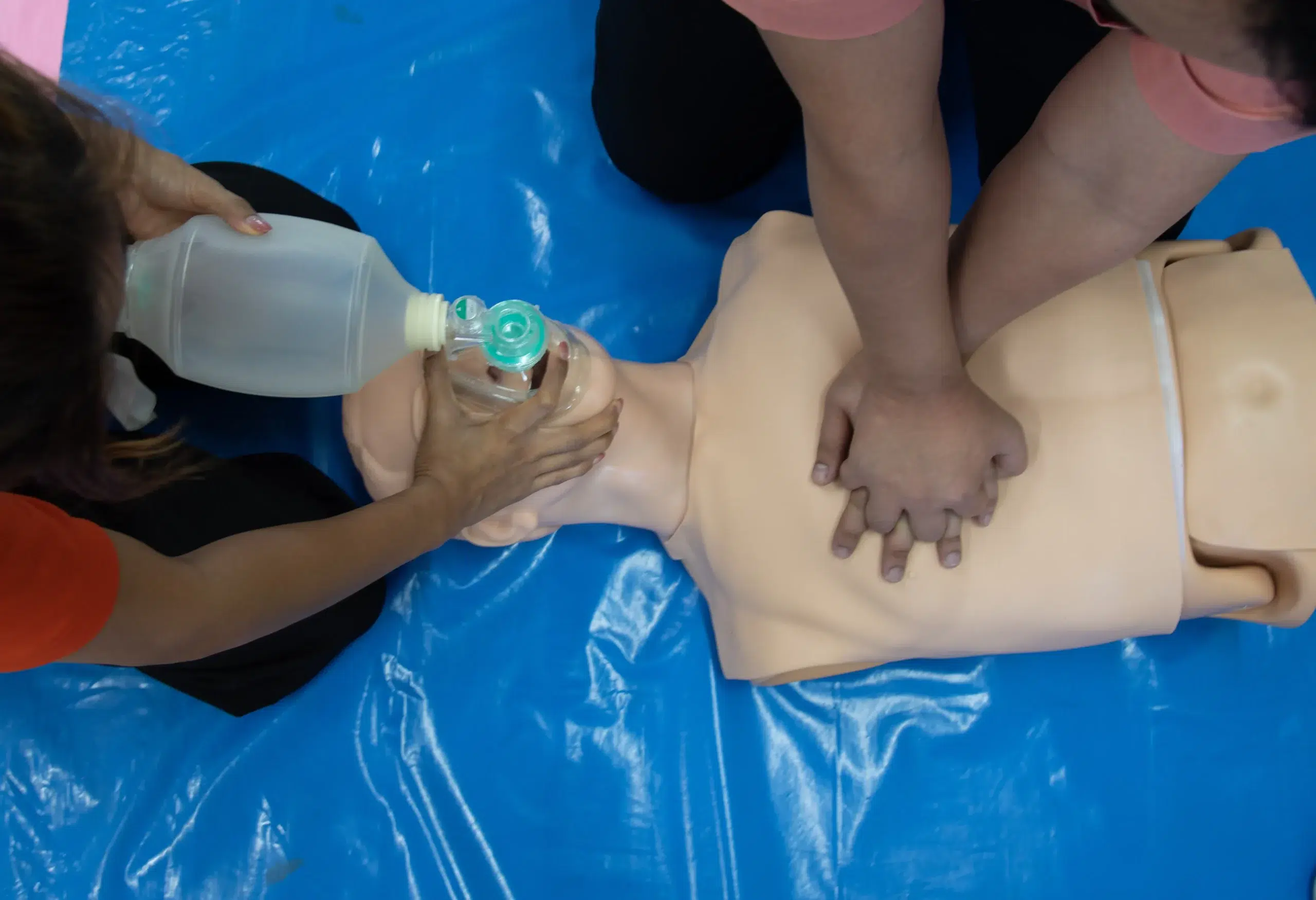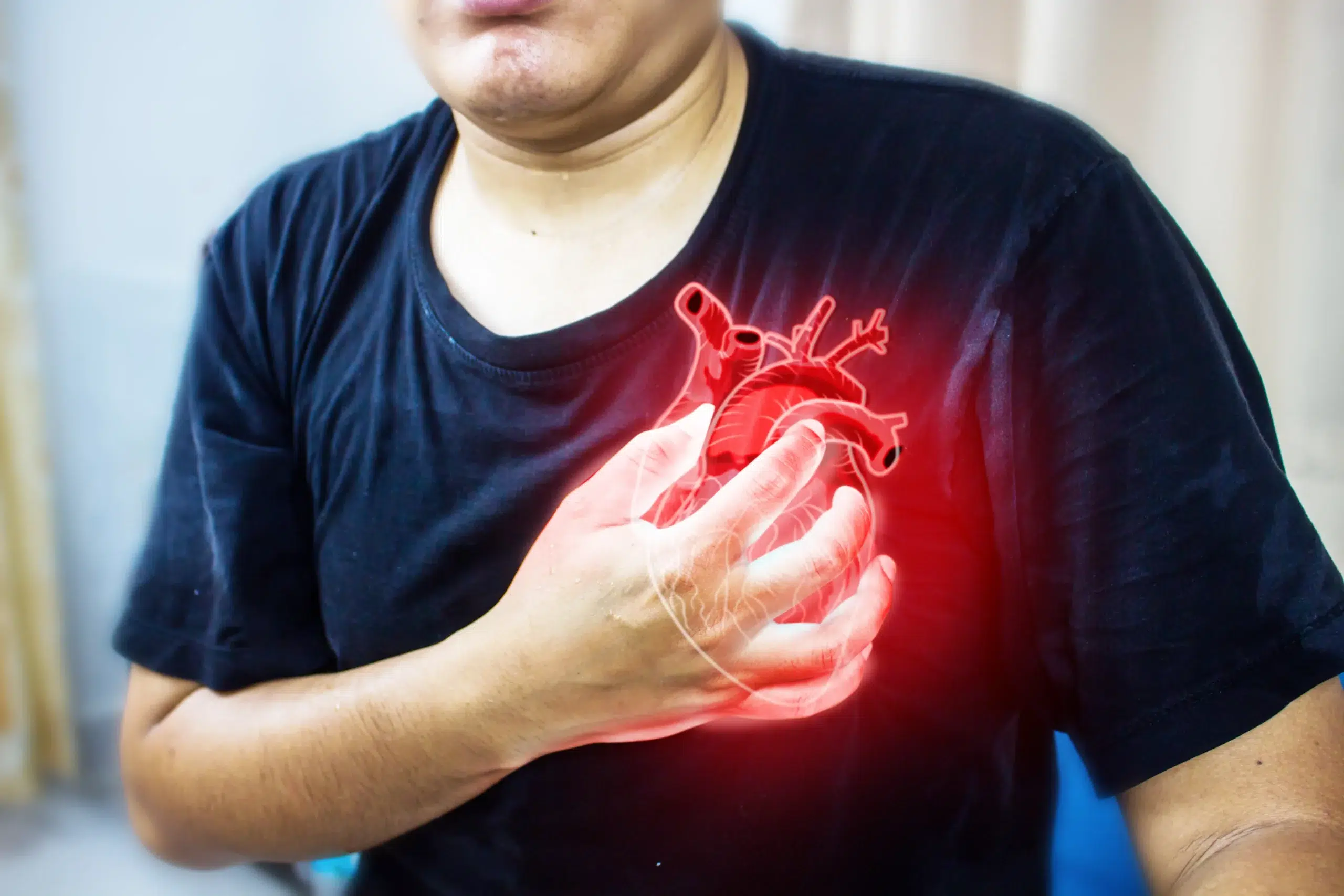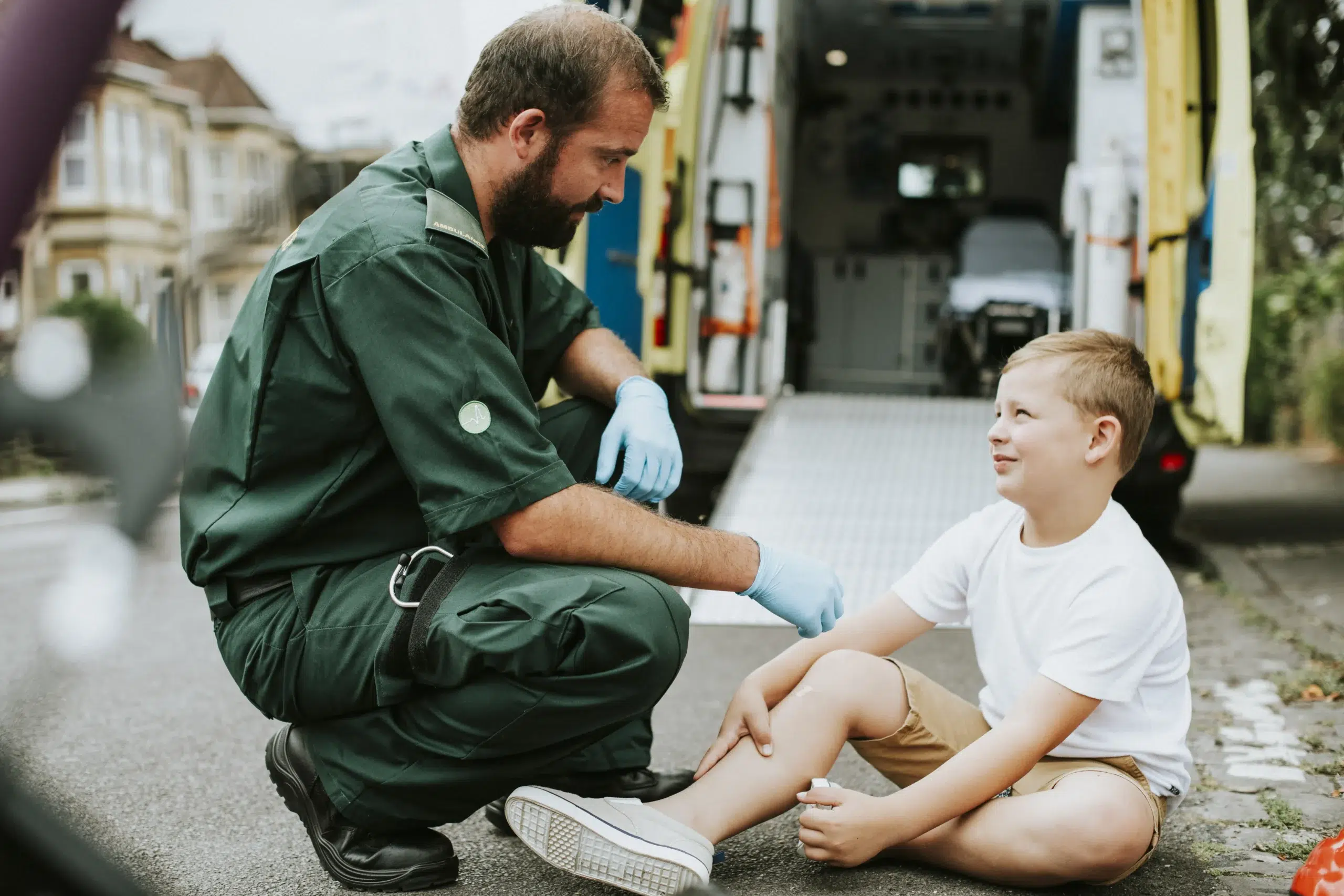In the heart of Silicon Valley, San Jose residents prioritize preparedness, and that includes being ready to handle medical emergencies. This guide focuses on BLS ACLS PALS training San Jose, providing valuable resources for individuals and healthcare providers alike. We’ll explore the distinctions between these life-saving certifications, discuss the benefits of each, and guide you toward reputable training providers in the area. Whether you’re looking to advance your career, improve patient outcomes, or simply gain the confidence to act in critical situations, this guide is your starting point. Join us as we delve into the world of BLS ACLS PALS training San Jose and empower you to make a difference.
Key Takeaways
- Choose the right life support certification: BLS, ACLS, and PALS each address different levels of care, from basic to advanced and pediatric. Select the certification that aligns with your current role and career aspirations.
- Find a training program that fits your needs: Consider factors like cost, schedule, format (in-person, online, or blended), and the reputation of the training center when making your decision. Look for AHA-certified courses and convenient options like the RQI program.
- Make the most of your training: Your certification is a valuable asset. Use it to advance your career, improve patient outcomes, and gain confidence in your ability to handle emergencies. Stay up-to-date with renewal requirements and continuing education opportunities.
What is BLS, ACLS, and PALS?
Knowing the difference between BLS, ACLS, and PALS certifications is important when choosing the right training. These certifications represent different levels of life support training, each designed for specific healthcare needs. Let’s break down each one:
What is BLS?
Basic Life Support (BLS) provides the foundational skills needed to respond to cardiac arrest and other life-threatening emergencies. BLS training teaches how to perform high-quality CPR, including chest compressions and rescue breaths, use an AED, and relieve choking. It’s the essential first step for anyone entering the healthcare field and is crucial for healthcare providers in any setting. Safety Training Seminars offers BLS certification courses that equip you with the confidence and skills to act quickly and effectively in critical situations.
What is ACLS?
Advanced Cardiovascular Life Support (ACLS) builds upon the fundamentals of BLS. It’s designed for healthcare professionals who manage cardiac emergencies and other respiratory emergencies. ACLS training covers a broader range of topics, including recognizing and managing pre-arrest conditions, advanced airway management, and the use of medications and electrical therapies like defibrillation. This certification is vital for healthcare providers working in emergency rooms, intensive care units, and other critical care settings. Consider registering for an ACLS course to enhance your skills.
What is PALS?
Pediatric Advanced Life Support (PALS) focuses on the specific needs of infants and children facing life-threatening emergencies. PALS training teaches healthcare providers how to assess and manage respiratory emergencies, perform age-appropriate CPR and use an AED on pediatric patients, and provide advanced airway management. This specialized training is essential for anyone working in pediatrics, emergency care, or other areas where they might encounter pediatric emergencies. Learn more about our PALS certification courses and how they can prepare you for pediatric emergencies.
Find Top Training Providers in San Jose
Finding the right training provider is key to a positive and effective learning experience. Here are a few reputable options to explore in San Jose:
Safety Training Seminars
Safety Training Seminars offers a range of American Heart Association (AHA) courses, including CPR, BLS, ACLS, and PALS. While their focus on Oakland contributes to a more prepared community there, they also serve the greater Bay Area. Their commitment to high-quality instruction and competitive pricing makes them worth considering. Learn more about their course schedule on their website.
CPR Training Center
The CPR Training Center in San Jose provides AHA-certified courses in BLS, ACLS, PALS, and First Aid. You can explore their programs on their website.
American Red Cross
The American Red Cross is a well-known provider of BLS training for healthcare providers. Their BLS certification course covers CPR, AED use, and airway obstruction relief for adults, children, and infants.
ProMed Certifications
If you’re looking for online certification and recertification options, ProMed Certifications offers ACLS, PALS, and BLS courses. Visit their website to learn more.
San Jose CPR
San Jose CPR offers comprehensive BLS, ACLS, PALS, and First-aid classes. With daily class today.
Compare Costs and Value
Getting certified in BLS, ACLS, or PALS is an investment in your skills and career. As you explore training options in San Jose, comparing costs and value is essential to finding the right fit for your budget and learning needs. Don’t just focus on the price—consider what each course includes and whether discounts are available.
Individual Course Pricing
Start by looking at the cost of individual CPR, ACLS, and PALS courses. Safety Training Seminars offers American Heart Association-certified courses in San Jose. Knowing individual course prices helps you build a budget and compare them with bundled options. Many training centers will have pricing information readily available on their websites, including those offering ACLS and PALS certification.
Package Deals and Discounts
If you plan to take multiple courses, look for package deals. Bundling often comes with a discount, saving you money compared to registering individually. Some providers also offer group discounts, so inquire about this option if you’re training with colleagues. A low price guarantee can give you extra confidence that you’re getting the best value.
Low Price Guarantee
A low price guarantee assures you that you’re getting the most competitive price. If you find a lower price for the same course elsewhere, the training center will typically match or beat it. This is especially helpful in competitive markets like San Jose, Santa Clara, and Sunnyvale. Before committing, inquire about any low-price guarantees and understand the terms and conditions.
Find Flexible Scheduling and Course Formats
Juggling work, family, and other commitments can make finding time for professional development tough. Luckily, if you’re looking for BLS, ACLS, or PALS training in San Jose, there are several scheduling and course format options to fit your needs. Let’s explore some of the possibilities.
In-Person Training
For those who thrive in a traditional classroom setting, in-person training offers a hands-on learning experience. You’ll have the opportunity to interact directly with instructors, ask questions in real-time, and practice skills with other students. Safety Training Seminars offers a variety of in-person AHA courses, including CPR, BLS, ACLS, and PALS, right here in San Jose. This format creates a supportive learning environment where you can build camaraderie with your fellow students. Check the course calendar to find a class that works for you.
Online and Blended Learning
If you need more flexibility, online and blended learning options might be a good fit. Blended learning combines online coursework with in-person skills sessions, offering a balance of independent study and hands-on practice. For healthcare providers seeking BLS certification, the RQI program offers a convenient way to learn and maintain your skills. This program allows you to complete the coursework online at your own pace and then schedule a short skills session to demonstrate your competency. This blended approach is ideal for busy professionals who need to fit training around their existing schedules.
Group and On-Site Training
Do you have a group of colleagues or employees who need training? Group training can be a cost-effective and efficient way to ensure everyone gets certified together. Safety Training Seminars offers discounts for group training and can even bring the training to your workplace with their on-site training options. This eliminates the need for individual travel and allows your team to learn together in a familiar environment. Contact Safety Training Seminars to discuss group and on-site training options and customize a program that meets your organization’s specific needs.
What to Expect During Training
Knowing what to expect can help you feel prepared and confident going into your training. Whether you’re taking a basic CPR course or pursuing advanced certification like ACLS or PALS, these life-saving courses combine theory, hands-on practice, and expert instruction.
Course Content and Critical Skills
AHA-certified courses, from basic CPR to advanced life support (ACLS / PALS), offer standardized, up-to-date training recognized by employers nationwide. You’ll learn essential life-saving skills and the latest evidence-based practices. The PALS course, for example, provides critical training for medical professionals in managing and responding to life-threatening emergencies in pediatric patients, including managing neonatal crash carts. Regardless of the course level, the curriculum covers core concepts and critical skills needed to respond effectively in emergencies.
Hands-On Practice and Simulations
Hands-on practice is crucial for CPR training. You’ll apply what you’ve learned in realistic simulations, practicing chest compressions, rescue breaths, and other essential techniques. Programs like RQI offer efficient CPR skill maintenance through frequent, short practice sessions and immediate feedback, helping healthcare professionals stay proficient. This practical experience builds muscle memory and confidence, preparing you to act decisively in real-world emergencies. Expect to work with training manikins and other equipment to simulate various scenarios. Instructors will provide constructive feedback to help you refine your technique.
Instructor Expertise and Teaching Methods
Experienced and certified instructors will guide you through the course material, demonstrations, and practice sessions. Safety Training Seminars is committed to delivering high-quality AHA courses, including BLS, ACLS, PALS, CPR, and First-aid. These instructors, often healthcare professionals themselves, bring real-world experience and insights to the classroom. Like the Red Cross, which uses a curriculum reviewed by its Scientific Advisory Council, quality training providers prioritize the latest science and best practices. They create a supportive learning environment where you can ask questions and receive personalized guidance.
Get Certified and Maintain Your Skills
Getting certified in BLS, ACLS, or PALS is an investment in your skills and your community’s safety. Whether you’re starting out or renewing your certification, understanding the process and available resources is key. Here’s a breakdown to help you get started and stay up-to-date.
Initial Certification Requirements
Safety Training Seminars offers a range of AHA courses, including CPR, BLS, ACLS, and PALS, right here in San Jose. These courses equip you with the knowledge and skills to respond effectively in medical emergencies. For more details on what’s available locally, check out their guide to AHA training in San Jose. These courses contribute to a more prepared and resilient community.
Renewal Process and Continuing Education
Staying current with your certification is crucial for healthcare professionals. The AHA’s Resuscitation Quality Improvement (RQI) program offers a streamlined way to maintain your BLS, ACLS, and PALS certifications. RQI helps San Jose healthcare providers maintain their CPR skills and knowledge through regular practice and assessment, ensuring you’re always ready to provide high-quality care.
Overcome Common Training Challenges
One common challenge in training is ensuring the material resonates with participants and meets their needs. Gathering participant feedback after training sessions is essential for evaluating program effectiveness and making improvements. This feedback helps training providers refine their courses and create a more valuable learning experience. It also allows you to identify areas where you might need additional practice or clarification.
Choose the Right Training Provider
Finding the right training provider is crucial for a positive and effective learning experience. Whether you’re a seasoned healthcare professional or just starting out, consider these factors when making your decision.
Key Factors to Consider
Look for a provider that offers a comprehensive range of courses. If you need BLS certification, see if they also offer ACLS and PALS. A provider like Safety Training Seminars offers a variety of American Heart Association (AHA) courses, including CPR, BLS, ACLS, and PALS—all in one convenient location. This is especially helpful if you plan to pursue multiple certifications. Also, prioritize high-quality instruction to ensure you’re well-prepared for real-life emergencies. Competitive pricing is always a bonus.
Read Reviews and Testimonials
Before committing to a training provider, take the time to research and read reviews from past participants. These firsthand accounts offer valuable insights into the training content, instructors, and overall learning environment. This information helps you determine if a particular provider is a good fit for your learning style and needs.
Unique Features of San Jose Training Centers
Many training centers in San Jose offer unique programs like the Resuscitation Quality Improvement (RQI) initiative. This program is especially beneficial for healthcare providers because it emphasizes continuous skill assessment and improvement. RQI programs help ensure participants are not only certified but also truly proficient in their skills. Look for providers who offer this type of innovative training. The BLS RQI program is a great option for medical professionals looking to maintain their skills and confidence.
Enroll and Prepare for Your Training
Getting ready for your BLS, ACLS, or PALS training is straightforward. With a little preparation, you can walk into your training confident and ready to learn. This section covers everything you need to know, from pre-course prep to what to bring on training day.
Pre-Course Preparation
Before your skills test, review the pre-course materials. Watching the videos increases your chances of passing the skills test by about 50%. The skills test itself is self-directed, using a voice-activated mannequin, and instructors are available by phone if you need help. Knowing the material beforehand lets you focus on the practical application during your skills test.
Registration Process
Registering for a course is easy. Safety Training Seminars offers classes for both individuals and groups, with discounts available for group registrations. They also offer on-site group classes, so you can train with your team at your location. Contact their customer service team to schedule a private group session.
Day-of-Training Essentials
Safety Training Seminars offers classes daily, including weekends, from 8 am to 10 pm. This flexible scheduling makes it easy to fit the training into your busy schedule. You’ll receive your certification on the same day as your skills test. Make sure to arrive a few minutes early to get settled in before class begins.
Maximize the Benefits of Your Certification
Getting your BLS, ACLS, or PALS certification is a significant achievement. But it’s not just a checkbox; it’s about unlocking your potential and making a real difference. Whether you’re a healthcare provider, a caregiver, or someone who wants to be prepared, your certification can open doors and empower you in various ways.
Career Advancement
In the competitive healthcare field, certifications like BLS, ACLS, and PALS demonstrate your commitment to high-quality care. These credentials can give you an edge when applying for jobs, promotions, or specialized roles. Employers value AHA-certified courses because they represent nationally recognized, standardized training. Whether you’re a medical student or a seasoned professional, maintaining these certifications can significantly impact your career.
Improve Patient Outcomes
For healthcare professionals, BLS, ACLS, and PALS certifications are more than just letters after your name—they represent your ability to respond effectively in critical situations. These skills directly translate to improved patient outcomes. Programs like the RQI program offer a convenient way to maintain these crucial skills, ensuring you’re always prepared to deliver the best possible care. By staying current with the latest resuscitation techniques, you contribute to a safer environment for your patients.
Build Confidence in Emergencies
Knowing you can handle a medical emergency builds confidence that extends beyond the workplace. Whether you’re at home, in the community, or on the job, your training empowers you to act decisively when seconds count. This preparedness benefits those around you and fosters a sense of personal empowerment. Gathering feedback after training can further solidify this confidence, allowing you to reflect on your strengths and identify areas for growth. This continuous improvement mindset ensures you’re always ready for any challenge.
Related Articles
- BLS ACLS PALS Training in San Jose: Your Guide – San Jose CPR Classes
- BLS Certification in San Jose: A Guide for Healthcare Providers – San Jose CPR Classes
- BLS Classes in Santa Clara: The Complete Guide – San Jose CPR Classes
- CPR, BLS, ACLS, PALS, & First-aid Courses in San Jose, CA
- AHA ACLS Classes in San Jose, CA – San Jose CPR Classes
Frequently Asked Questions
What’s the difference between BLS, ACLS, and PALS?
BLS is the foundation for life support training, covering CPR, AED use, and choking relief. ACLS builds upon BLS, focusing on advanced cardiovascular emergencies for healthcare professionals. PALS is tailored to the specific needs of infants and children in emergencies. Each certification level addresses different needs and situations, so choosing the right one depends on your role and responsibilities.
How do I choose a training provider in San Jose?
Consider factors like the range of courses offered, instructor experience, and cost. Look for providers offering AHA-certified courses, which are nationally recognized. Reading reviews and testimonials from past students can give you valuable insights into the quality of training. Also, check for unique features like the RQI program, which offers a convenient way to maintain your skills.
What can I expect during a BLS, ACLS, or PALS course?
Expect a blend of interactive learning, hands-on practice, and expert instruction. You’ll learn essential life-saving skills through demonstrations, simulations, and real-world scenarios. Instructors will guide you through the material and provide feedback to help you refine your techniques. The emphasis is on building confidence and competence in responding to emergencies.
How can I fit training into my busy schedule?
Many training centers offer flexible scheduling options, including weekend and evening classes, online courses, and blended learning formats that combine online coursework with in-person skills sessions. Some providers also offer on-site training for groups, bringing the training directly to your workplace.
How do I maintain my certification after completing the course?
Certifications typically require renewal every two years. The RQI program offers a streamlined way to maintain your BLS, ACLS, and PALS certifications through regular practice and assessment. This ongoing training ensures you stay up-to-date with the latest guidelines and maintain your skills at a high level.


